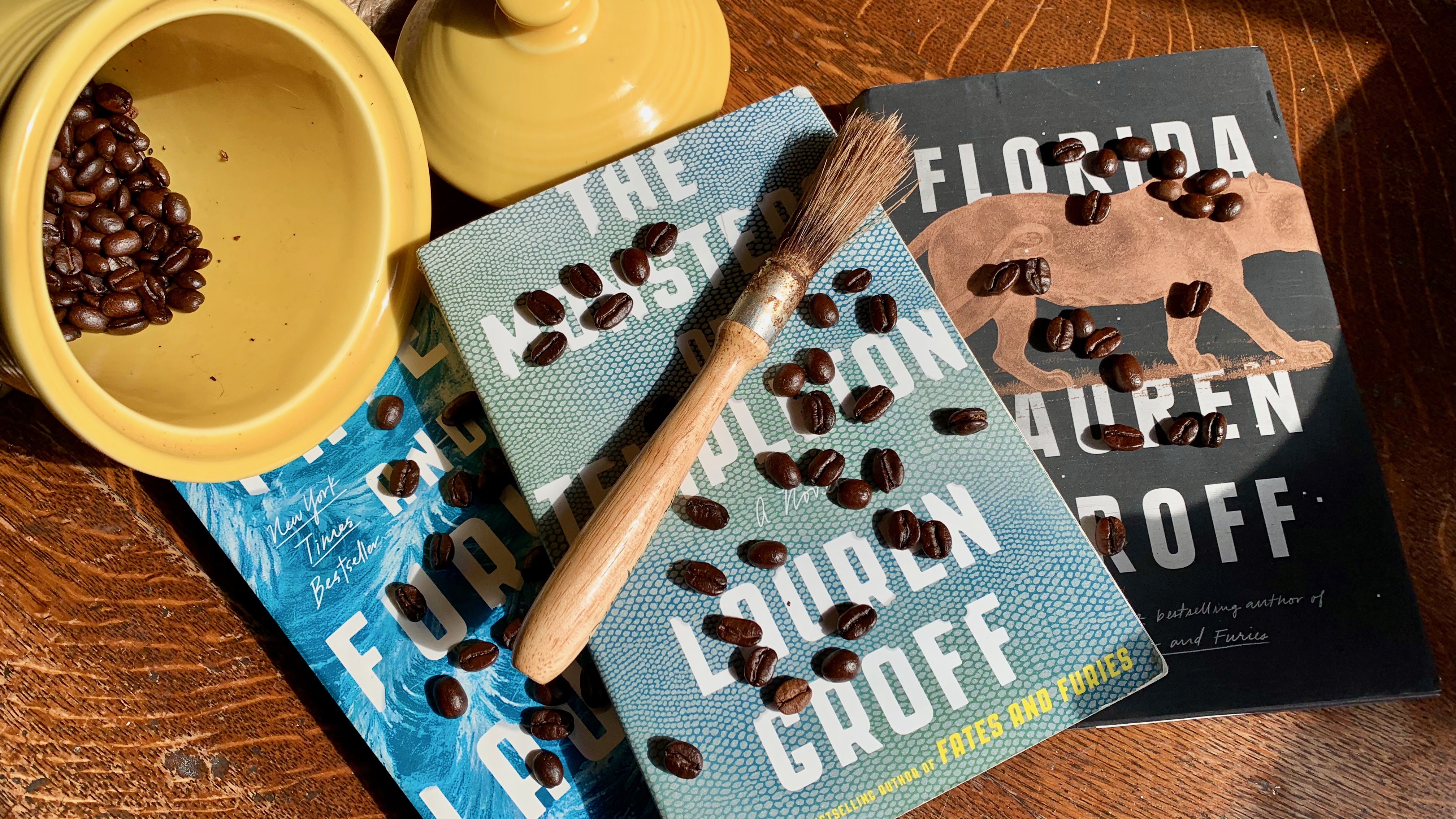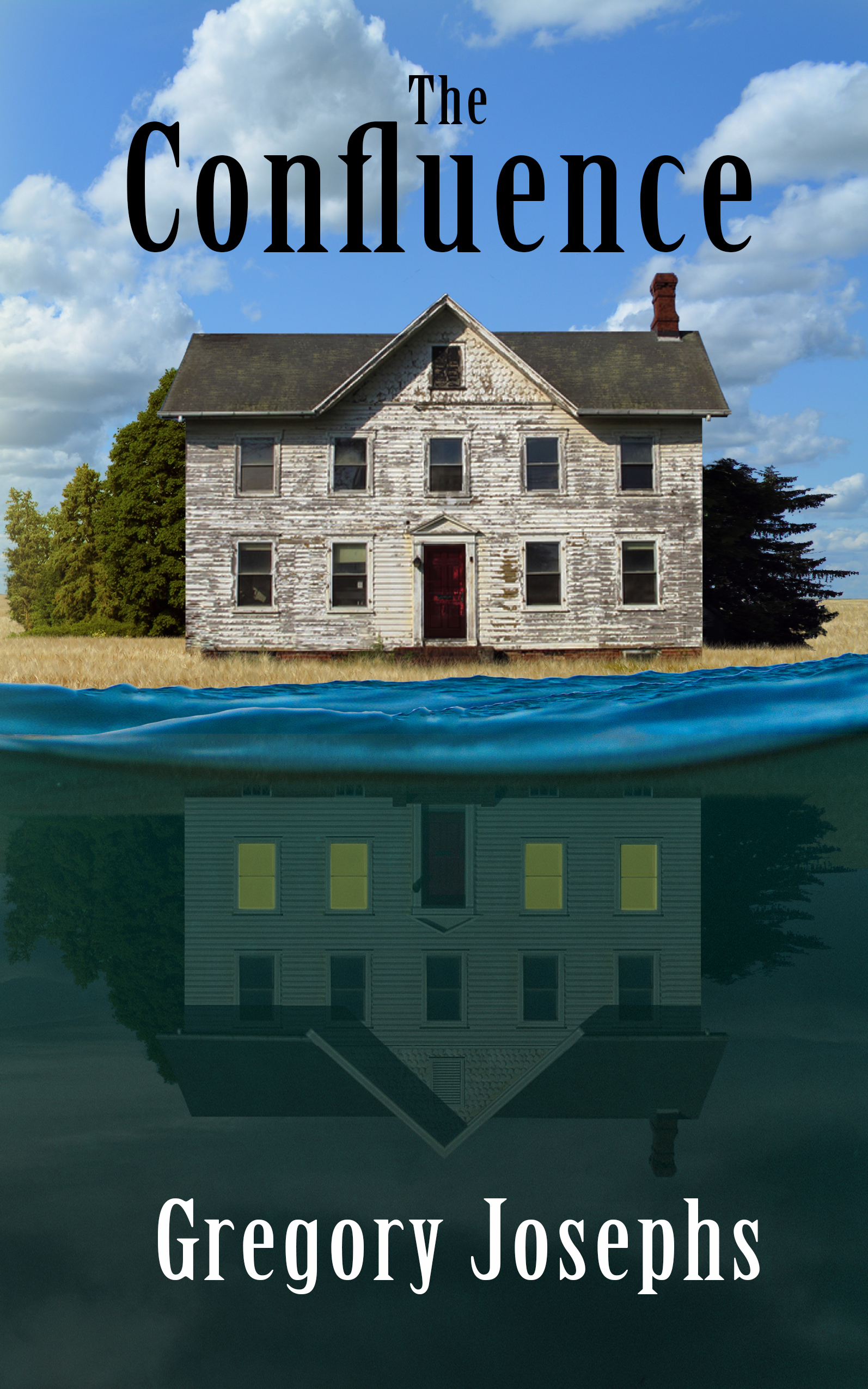
Is Lauren Groff better than Coffee?
Lots of writers can’t write without coffee, and I’m no exception. But I think I’ve stumbled onto something truly indispensable, and her name is Lauren Groff.
Although there are plenty of exceptions, most of the writers I know are coffee fanatics. Not only does caffeine help us stay alert, and improve our moods and focus, let’s be honest: it’s part of the image. Ask a random person to describe a stereotypical writer and you might get something like:
Grizzled and eccentric. Alcoholic chain-smoker. Hand on a moleskine notebook, penetrating gaze, Mona Lisa smile.
And coffee. Gallons of coffee.
The image is as romantic as it is destructive. Luckily, I think writers have left most of this cliché in the middle of the last century. But the coffee? The coffee has stayed with us (props to you writers who avidly prefer tea). And that’s alright. It’s delicious! I have a cup right now, and truth be told, I might not have made it through these first four paragraphs without it. It’s a tool. It’s a crutch. But, for myself at least, a big part of an efficient writing session is to …
Have Everything in Place
I have a routine that puts me in my creative space. It starts with converting the stool from our tiny dining table into a perfect sofa-height desk. I plop down in the living room or office (there are sofas in each), turn on the Apple Music Chill station, get the dog and cat nestled in nearby, open the laptop and tap, tap, tap away on the keyboard.

With coffee. Always coffee.
And I’m away! The creative juices start to flow. The words fall out. Give me an hour or two, and I walk away with measurable progress on whatever the projet du jour happens to be.
But lately the project du jour has revolved around editing. I recently finished another round on the upcoming novel, and right now I’m working my way through a dusty old short story (really can’t wait to share this one). And editing is, essentially, the process of taking the mediocre and turning it into the extraordinary.
Coffee helps. Yes it does. But recently, I’ve discovered reading Lauren Groff while I’m editing helps even more. Yes, that Lauren Groff. Perennially nominated for the National Book Award. As it turns out, everything comes out better when I keep her in my head.
Boundless Inspiration
My path through Lauren Groff‘s catalog has been circuitous. I started, on a whim, with Fates and Furies. In a world where more books are published every year than I could read in a lifetime, F&F might be the only book in recent memory I could read over and over again. In 300 pages, Groff totally changed my perception of what a novel could be, and transformed a life-long love affair with language into an absolute obsession. Half a year later, I tore through Florida, and then, at the dawning of this year, I decided to start with her debut, The Monsters of Templeton.
While I read the previous two volumes in a matter of days, this time around, things were different. I’d sprinted through the end of my 2018 Goodreads challenge, and I was a little burned out. Also, as I mentioned, I was actively working through revisions of the forthcoming novel, and as a general rule, I have a difficult time reading while I am writing.
But taken in small doses of ten to fifteen pages at a time, this novel provided constant encouragement. Groff’s command of language and peerless descriptions pushed me to take a hard look at my own writing—to celebrate what was already great, but never settle for what passed as good enough. While I’d stop well short of directly comparing my work with Groff’s, I can say with confidence that mine is better for revising it alongside reading hers. With every immensely satisfying stand-out passage in Groff’s debut, I was motivated to hunt down the stubborn mediocrity hiding out in my own prose, and ask myself:
If she’d written this sentence, what would Lauren do?
It took me two months to get through a book that would normally take me a week (and as of this writing I’m way behind on my 2019 challenge), but I can say, honestly, this slow approach allowed me to chew on every word, and I’m so thankful to have done so.
Suffice it to say, at the level of the sentence, The Monsters of Templeton is a master work. But on a macro level?
More of the same. Inspiration. Groff’s ability to jump through time and weave together a narrative across three centuries shows a carefully reading author how expertly an ambitious novel can be executed. The story is compelling, the characters are rich, and the sense of place so palpable, I felt more than once that Templeton could’ve been my home town.
The Work it Takes
As a writer with ambitions to craft similarly complex stories—perhaps starting with the next one I write—Groff’s work is an example of why it can and should be done. In the author interview at the end of the edition I read, Groff confesses that she wrote and completely discarded several previous drafts, and that the protagonist in her final form didn’t even emerge until the fourth fresh draft. It’s a reminder that writing is a labor of love, and again, it’s alright not to settle for good enough.
The reader and fan in me is dying to dive right into Groff’s second novel, Arcadia, but I’m going to spend a little while basking in the glow of this one first.
Her work has become a writing companion as indispensable as coffee. When the time is right, and I’m ready to start that next manuscript, you can be sure I’ll hold her voice in my mind—not in an effort to emulate her unique style, but to let her keep me honest. To continually strive to be the best writer I can be.
So, now the dog needs a walk. There are chores to be done. But before I sign off, I’m going to take a moment to raise a cup to literary heroes in the hope that I’ll be perpetually caffeinated, and perpetually inspired.
Share your thoughts! Is there a writer whose voice you just can’t get out of your head? If you’re a writer (or artist of any kind) is there someone whose work inspires you to always do better? And, of course, coffee, tea, or neither? Let me know in the comments below.
Thanks as always for reading,
Gregory
P.S. The meat of this post is adapted from my review of The Monsters of Templeton on Goodreads. Are we friends yet? Click over, and let’s connect through great books.

